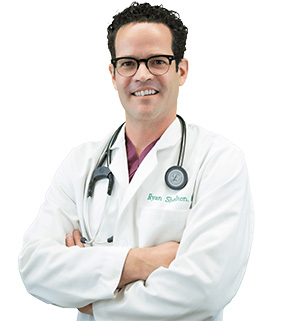Being the third most common health problem in America, more than 200,000 people in the United States report hearing loss each year. A total of about 48 million Americans live with some hearing loss. The causes vary widely from aging to catastrophic damage to the ear, with the usual cause being inner ear damage. Inner ear damage can be caused by genetic defects, disease, injury, prolonged exposure to loud noises, old age, and even via certain medications.
Due to the nature of the ear, many types of hearing loss are untreatable, which means that the best way to treat hearing loss is to avoid it.
Some types of hearing loss absolutely cannot be avoided. One such cause is old age. Old age is the most common cause of hearing loss, affecting one out of every three people between the ages of 65 and 74, and one in two people over the age of 75.
We are told that the medication we’re prescribed is to help us get better, but some medication can actually make matters worse, and some can cause hearing loss. Over 200 medications have been found to negatively impact hearing, and some are quite surprising, like aspirin and antibiotics. Other medications like chemotherapy drugs, loop diuretics, drugs to treat malaria, and even drugs used to treat erectile dysfunction have been found to cause hearing loss.
Scientists are continually studying the effects that aging has on the ear, aside from the simplified notion that things just degrade as they age. Researchers are studying the mechanisms and biology of hearing loss in ways never done before.
One such compound being explored for its benefits to hearing is coenzyme Q10. Research is underway to find out if this antioxidant compound can help mitigate the effects of hearing loss.
Coenzyme Q10, or CoQ10 for short, is an essential element in the body, responsible for aiding many daily biological functions, and providing powerful antioxidant properties to help eliminate free radicals. Commonly thought to help treat certain heart problems, CoQ10 has been used in medicine practices for decades.
On noise induced hearing loss, CoQ10 has also shown promise.
Not all exposure to extremely loud noises causes permanent hearing loss. Very often, the exposed person will experience temporary hearing loss or impairment. This condition is called temporary threshold shift (TTS) and can cause hearing to become diminished for an undeterminable amount of time. The amount of time that it takes to recover depends largely on the intensity and duration of the exposure, with the most recovery taking place within the first 15 minutes after exposure.
Coenzyme Q10, diluted in water for better bioavailability to cells, has been found to have a protective effect on the tiny hairs inside the ear after exposure to loud noises. Researchers exposed 30 volunteers to a 90 decibel noise in one ear for 10 minutes, after which they evaluated for severity of TTS.
Before treatment with coenzyme Q10, the longest recovery time was 45 minutes. After treatment, the mean recovery time was 31 minutes. Researchers speculate that the improvement has to do with the effect of Coenzyme Q10 on the outer ear hairs. Because CoQ10 is a powerful antioxidant, it helps the hairs resist oxidative stress which can damage the follicle.
One of the worst ways to lose your hearing is from medication. The emotional stress and heartache can really take its toll on a person. People are prescribed medication that gives them hope of recovery from one illness, only to have it cause more ailments. Fortunately, coenzyme Q10 has also been shown to help treat medication induced hearing loss as well.
Ototoxicity refers to drug or chemical-related damage to the inner ear, resulting in damage to the organs responsible for hearing and balance. Even very safe drugs like aspirin and ibuprofen can cause ototoxicity if taken in excess, but the most common drugs that cause this ailment are certain antibiotics like gentamicin, streptomycin, and neomycin.
One study shows that CoQ10 is effective in mitigating the ototoxic effects on the ear caused by gentamicin. This antibiotic is known to produce free radicals in the body via the formation of an iron gentamicin complex. Antioxidants like CoQ10 help to eliminate free radicals and prevent cellular damage.
In a 14 day evaluation of guinea pigs, researchers found that “[coenzyme Q10] therapy slowed and attenuated the progression of hearing loss, yielding a threshold shift of 20 decibels.” Gentamicin caused significant loss of outer hair cells in the cochlear medio-basal turn, but this effect was not observed in the animals treated with coenzyme Q10.
Researchers believe that it is the antioxidant prowess of CoQ10 that helps to fight off free radicals, especially in the hair follicle.
The good news is that the body synthesizes CoQ10 naturally, and this natural creation coupled with dietary intake seems to be enough. But as the body ages, it produces less coenzyme Q10, so those over the age of 40 may want to think about supplementing. As an antioxidant, CoQ10 is fantastic, protecting the body all over against disease-causing free radicals, and for hearing, this means retaining the hairs in the inner and outer ear longer, slowing down the effects of all types of hearing loss.










